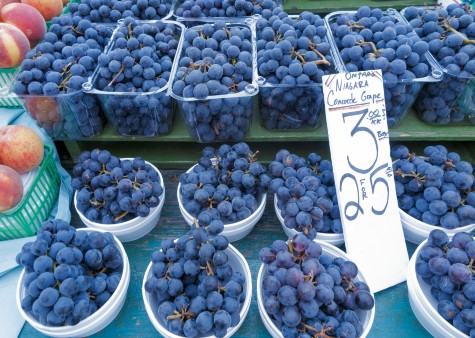Growers Supported During COVID-19
By Heather Gale and Amelia Balsillie
When the coronavirus took the world by storm earlier this year, we all found ourselves trying to make difficult decisions in real time, facing new challenges and adapting to rapidly changing circumstances – all in the absence of complete information. When the pandemic hit, CanadaGAP Program’s first step was to create a dedicated webpage for COVID-19 information. The page provided links to sources that answered questions about whether there were any food safety implications related to the coronavirus, how businesses could prepare and keep their employees safe, and what to do if an employee falls ill. The website also shared and promoted opportunities for industry to give feedback to the Canadian government on matters relevant both to food safety and health (e.g., Personal Protective Equipment needs).
Direct and regular communication with program users during this period has been paramount. The webpage and other publications explained expectations for program participants regarding CanadaGAP audits and certification for 2020. As a GFSI-recognized program, CanadaGAP had to ensure the approach taken aligned with GFSI’s position, which allows for a maximum of a 6-month extension to certificates.
A program participant must adhere to food safety practices on an ongoing basis. A fully implemented food safety program runs during the entire production period, not simply on the day that the auditor arrives to evaluate the operation. When the audit occurs, the auditor observes not only what is occurring that day, but also looks for evidence that the program is being routinely maintained — by interviewing employees, reviewing documented procedures and ongoing records, and assessing measures taken to ensure adherence to food safety practices. All of these items are evaluated and assigned a score on the audit checklist.

Since March, CanadaGAP has prioritized communication with program participants and other stakeholders. It maintained its “open door” policy for two-way communication: program participants were invited to call or email the office with any concerns or questions they might have. Most of the questions CanadaGAP staff received had to do with accessing PPE, since the PPE needed for COVID protection overlaps with items that are needed for food safety (i.e., hand wipes and sanitizer; hand washing facilities, including portable hand washing stations for production sites; etc.).
CanadaGAP remains committed to maintaining its coronavirus response, from communicating new information, supporting the needs of certified companies, and continuing to adapt its strategy and procedures to ensure food safety is maintained even in the midst of the pandemic.
About the Author:
Amelia Balsillie has been with CanadaGAP since 2015 and serves as Technical Support Coordinator for the program. She holds both a B.Sc. and B.A. and grew up on her family’s fruit farm on the shores of Lake Erie.
Heather Gale is the Executive Director of CanadaGAP. She has been involved with the development of the CanadaGAP program since its inception in 2000. She holds a graduate degree and was previously responsible for communications, issues management, and food safety with the Canadian Horticultural Council. She grew up working seasonally at a local berry farm and market garden.

Categories: Canadian Standards
Tags: CanadaGAP program , Canadian growers during Covid-19 , Food Safety



